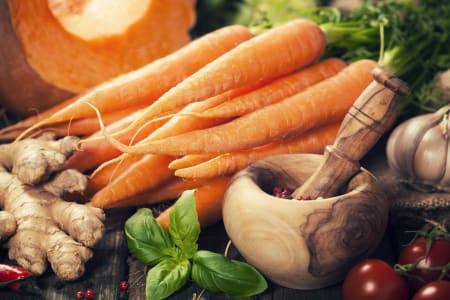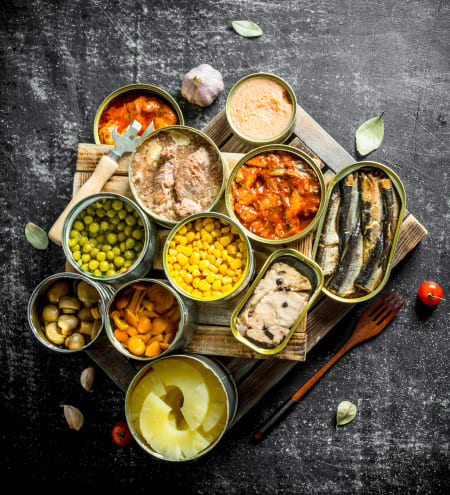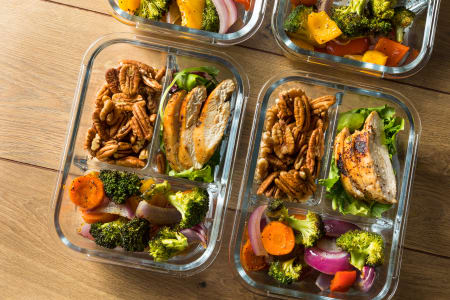Eating healthy is not just for people who want to lose weight. It's also essential for anyone that values their health.
It’s fair to say that most of us know that eating fresh, healthy, and nutritious food loaded with vitamins, minerals, antioxidants, fiber, healthy fats, and other natural goodness is crucial for optimal health and wellbeing. However, accomplishing that isn’t always as straightforward as it sounds.
Many factors go into eating healthy, but today, we’re going to talk about access while staying within limited resources. Sometimes that looks like empty store shelves, and sometimes it’s the rising cost of healthy food affecting what we can afford to eat.
Here’s a look at several ways to eat healthy with limited resources.
Grow your fruits and veggies
Okay, so we know you’re thinking ‘duh’ this is the obvious choice but learning to grow your food is both a time and financial investment. But it’s worth it. We recommend starting small and expanding as your knowledge and confidence grows.

Try out gardening with an assorted set of 40 Heirloom Vegetable and Herb Seeds anywhere you can place a planter such as a balcony or your yard.
Growing your fruits and vegetables has two significant benefits. It will save you money in the long run, whether it’s the expense of travel or the time spent at grocery markets. Second, it allows you to manage what you are eating better because you will control any chemicals used.
It feels like you’re making good food choices as you fill up your grocery cart with fruits and vegetables, but pesticides and chemical fertilizers are common in commercial food production. The use of unknown chemicals means that the final product you purchase at the grocery store may not be as healthy or nutritious as you think.
Stock up on canned goods
While we always recommend fresh, local, and nutritious foods when possible. Canned vegetables are still better than no vegetables.

When buying commercially canned foods, it’s essential to read the labels and avoid heavy syrups when possible. Also, keep an eye on the sodium content. But even with these considerations, these can be good choices for inexpensive nutritional options when you don’t have access to fresh fruits and vegetables.
For a Prepper, canned goods are vital. Not only will they give you the security of knowing you have food when scarcities might arise. The average shelf life of canned foods is two years.
Don’t be afraid of frozen
Eating frozen foods as a healthy option seems counterintuitive, but freezing fruits and vegetables have little effect on their nutritional value. Because they are frozen shortly after harvesting, they are often fresher than what you buy in a grocery store.
This option is often constrained to the space limitations of our freezers. However, as long as you have freezer space, try to stock up on foods that can be frozen, as they have an excellent shelf life.
Plan your meals
Meal planning is a great way to make sure you are stretching your food resources to their maximum. Meal planning can be as simple as a notebook or as techie as an app on your phone. As with most things, we suggest starting simple with a notepad like Sweetzer and Orange Weekly Planner.

By planning, you will know what to get at the grocery store and are less likely to purchase unneeded and unhealthy foods, but you will also waste less food. Having a plan can also let you know what ingredients you can use multiple times during the week or what to defrost, prep, and organize.
The most considerable health benefit to meal planning is that you are less likely to resort to fast food or eat other junk when you have a meal planned. Just be sure to take into account what your weekly schedule is. If you know you are working late one day, plan for a dinner you can prep ahead or is quick to cook.
Prep your meals
Once you’ve planned your meals, you can go one step further and actually prep them for the days ahead.
Meal prep may be boring to some and seem like an extra step. However, having your meals prepped means that you don’t have to worry about peeling, chopping, cooking, and washing the dishes.

We find one of the best times to do that is when you get home from the grocery store; before putting your vegetables away, prep them for the week. This simple step will save time and energy later. Plus, it’s generally easier to do this before you put them away than to pull them out later to prep.
Once you get used to prepping individual ingredients, you may want to start preparing whole meals and store them in Tupperware such as EZ Prepa meal prep containers. These containers are great for quick meals and snacks.
Overall, each of these options will take some investment. But can be achieved in gradual steps. To start eating healthy with limited resources doesn’t mean you have to go out and set up an expensive aquaponics garden or spend hundreds on bulk items at a local warehouse store. Small moves add up to large changes.
Please share with us what small changes you are making to help yourself eat healthier this year.